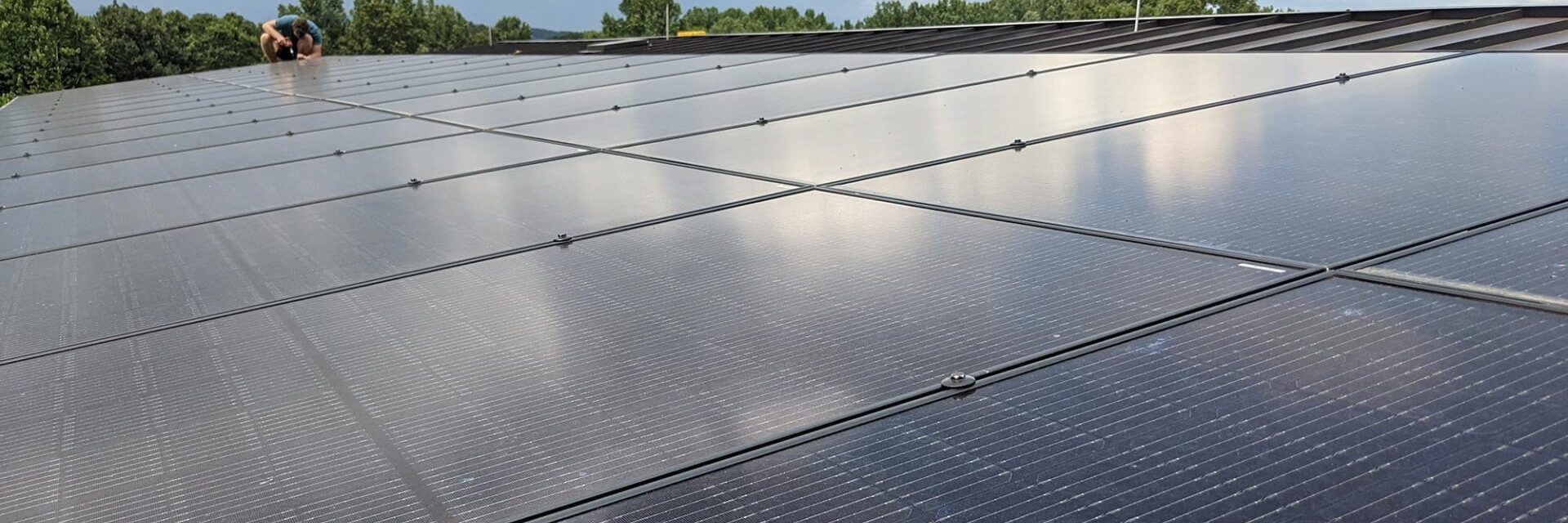Are you considering getting solar panels? While most solar panels have similar features such as a 25-year warranty and hail rating, it’s important to look beyond these basic features and focus on the manufacturer’s stability, what the differences in solar panel warranties are, and at the overall quality of the proposal, not just a particular solar panel.
How stable is the solar panel manufacturer?
Imagine purchasing solar panels from a brand that goes bankrupt a few years later. Even if the panels have a 25-year warranty, you won’t be able to get a replacement if that company is no longer in business. To ensure you are making a wise investment, research the manufacturer’s stability.
One way to assess a manufacturer’s stability is to look at their financials and track record. Are they profitable and have they been around for a while? Do they have a good reputation in the industry?
Production vs. product warranties
It’s important to ensure that the manufacturer offers both a 25-year product warranty and a production warranty. Most solar panels have a 25-year production guarantee, but this is typically pro-rated, meaning that if the panel fails in year 12, you would likely only get a check for about half the value of the solar panel.
The product warranty ensures that they’ll cover defects for the full 25-years. Lower-cost panels tend to have worse product warranties (10-15 years), while the more expensive panels often have 25/25 warranties.
Are high-efficiency panels better?
If money is no object, then the answer is yes. Unfortunately, that’s not the practical answer for most of us. If you have ample roof-space for your solar array, there’s no reason to demand the highest efficiency panels around unless you want to pay top dollar for them (see our article explaining more about high-efficiency solar panels). If you want more power, you want the largest (in kW) system you can get.
One thing to note is that panels come in many power classes — 300W, 360W, 400W, 500W, etc. This is constantly changing, in part due to increases in efficiency (panels keey getting more powerful because they are getting better at capturing sunlight), but it’s worth noting that most solar panels come in different physical sizes. There is no standard dimension for a solar panel, so a 400W solar panel could be less efficienct than a 300W one, it just happens to be very large.
How can I get the best solar system?
Everyone wants to get a great solar system, and get the best quality they can afford. That said, the overall quality of solar panels tends to be very high, even from many of the “cheaper” manufacturers. From installing solar for over a decade, I can say that I’m usually more concerned with what type of inverter is being installed, the responsiveness & service record of the installation company, and how much the system costs. Panel failures are relatively rare, so while it’s worth advocating for a great warranty, it’s probably not worth paying an unreasonable amount to make sure the company will send you a $300 part twenty years from now.
At Virtue, we certainly don’t roll the dice on trying out panels that are brand-new to market, but we’ve been impressed with the build quality of some of the more affordable companies out there, and disappointed with some of the “premium” models. For a more thorough guide on how to get the best solar system, check out our article on how to compare solar quotes.
Supply shortages & instability
During the pandemic, global supply shortages led to a surge of new solar panel manufacturers entering the market. Like many other companies, we found it near-impossible to get panels from our usual manufactures. This has led to the rise of lots of new companies trying to take advantage of this opening in the industry.
While some of these companies may offer similar solar panels, they do not have the track record or experience of some of the larger manufacturers. This makes it hard to gauge the quality of those products, because they haven’t been around long enough to tell how reliable they are. They may in time prove to be great products, but with such a large investment, you may not want to be the test-case.
Of course, stability is not the only factor to consider when purchasing solar panels (cost and efficiency of solar panels are often considered as well) but it is a critical one. By ensuring the manufacturer is stable, you can feel confident that they will be around long enough to honor any warranty claims if needed. So when choosing solar panels, remember to look beyond the basics and focus on the manufacturer’s stability for a wise and long-term investment.

